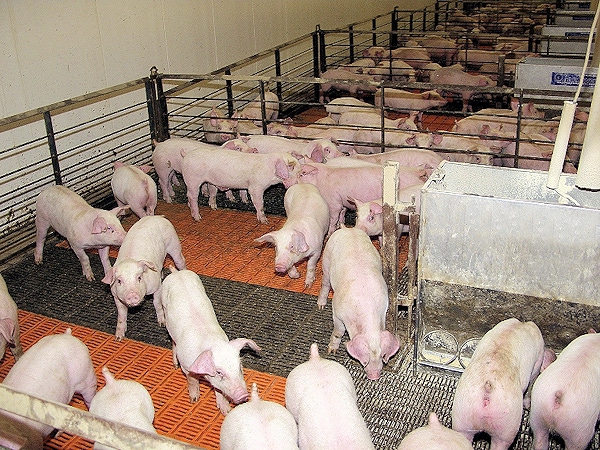April 30, 2014

Problems both domestic and international are taking their toll on America's hog producers, according to the National Pork Producers Council. The group, testifying before a House Agriculture subcommittee, outlined two key issues impacting the industry - a deadly pig disease and the threat of trade retaliation against pork products.
During a hearing held by the Agriculture Subcommittee on Livestock, Rural Development and Credit, NPPC President Dr. Howard Hill, a Cambridge, Iowa farmer and veterinarian, outlined effects on hog farmers of two key issues - U.S. country-of-origin labeling (COOL) and porcine epidemic diarrhea virus (PEDV).
Hill explained that the COOL requirement to label meat with information about where an animal was born, raised and slaughtered has caused the Canadian pork industry to reduce production as U.S. hog farmers sought to avoid the law's costs and complications. He adds that the statute prompted Canada and Mexico to bring trade cases against the U.S. at the World Trade Organization (WTO), which is expected to rule this summer.
If WTO rules against COOL, Canada and Mexico would be allowed to place retaliatory tariffs on U.S. products and NPPC is urging Congress to consider a legislative fix to the law.
PEDV, says Hill, has already killed 7 million pigs in 30 states since last April and could add up to a 10 percent slaughter reduction this summer.
Steve Meyer, president of Paragon Economics, Adel, Iowa, and a regular contributor to National Hog Farmer, notes that reduced slaughter could push up pork prices by as much as 15 to 25 percent and force consumer prices higher too.
NPPC's Hill notes there's a broader economic impact to PEDV too. With reduced hog numbers that means less feed consumption, less medicine purchased, fewer veterinary services bought and less hours at packing and processing plants.
NPPC is calling on USDA to conduct a thorough investigation on the pathway PEDV and other viruses used to gain entry into the U.S. swine herd, to conduct research on viral propagation of the diseases and to commit more resources to determining pathogenesis of and ways to control the viruses. During testimony, the pork industry also urged USDA to "take a thoughtful and measured approach" to developing the PEDV reporting program announced recently. Hill says hog farmers need a program that is "practical, working and that can be successful."
You May Also Like



